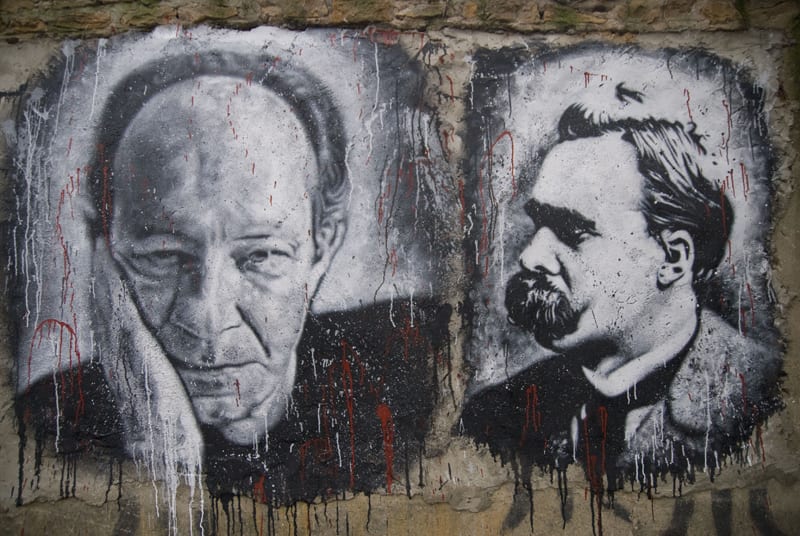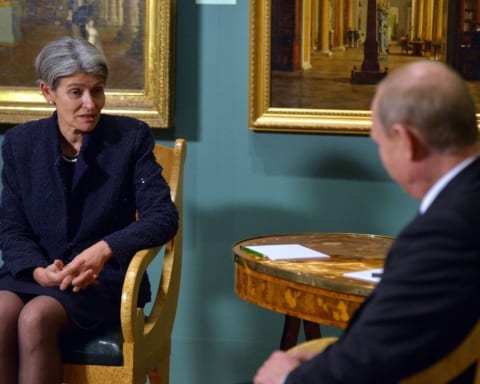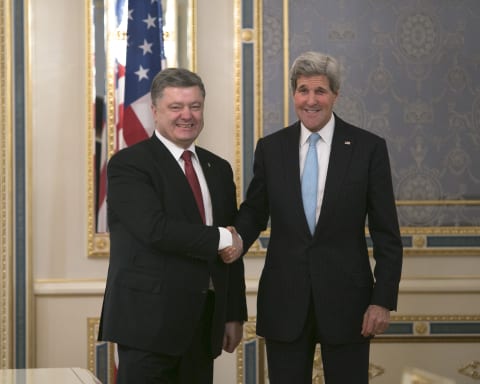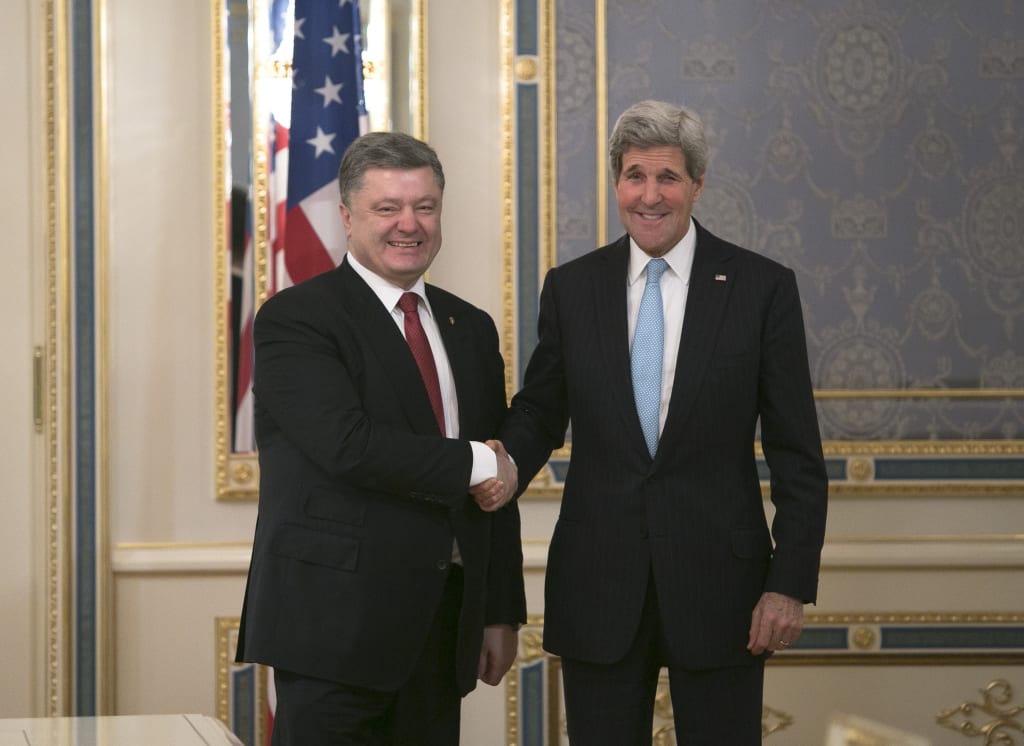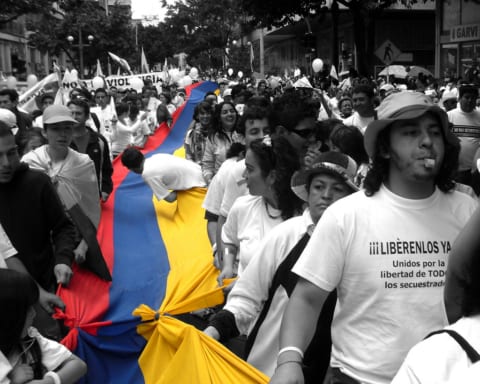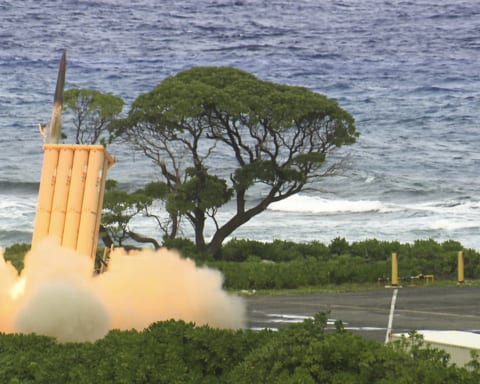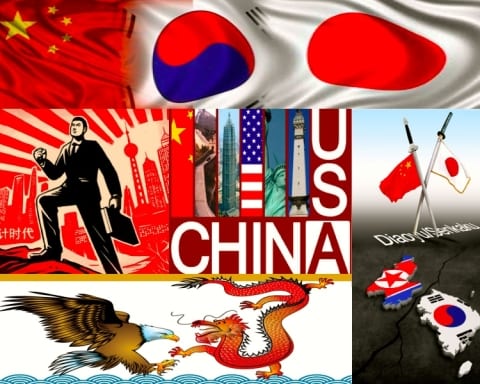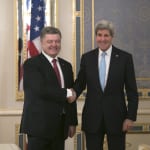After going head-to-head with the West over Ukraine, and to a lesser degree over Georgia, Russia is still making waves on the international stage. Speaking at the Munich Security Conference, Premier Dmitri Medvedev minced no words in stating the Kremlin’s reading of the current geopolitical order—a cynical Cold War.[1] The Kremlin is all but confounding its critics and staking its strategic claims more vociferously than at any time in the post-Cold War era. Russia’s recent foreign policy posture is predicated on shrewd nihilism, as demonstrated in Georgia, Ukraine, Libya and Syria. This sense of nihilism owes its origins to a tradition that goes back to pre-revolutionary Russia, seeping into the Marxist-Leninist policies of braggadocios interventionism. It is premised on a crude sense of viewing the world as a contested space of interests that are disguised in value-laden narratives.
Amidst the domestic chaos of the 1990s, a battered Russia was compelled to look inwards to consolidate the coarse power capacity across its vast ancient boundaries; to redefine its identity as a Great Power before seeking to stake its claim in the new system that was perilously subsuming it. It was during this period that Boris Yeltsin worked to cozy up with the West. Moscow however did itself no favors by callously misreading the implications of its acquiescence to the West on the evolving geopolitical landscape. Without fully comprehending what was on offer, the Kremlin’s tainted lens of Great Power romanticism made it take cooperation with the West as a given. Healthy cooperation, it was assumed, would take away the need to maintain the psychological straightjacket of realpolitik and its associated burdens. A reformed Russia would also provide occasion to welcome Moscow into a position of joint global leadership with the West and its allies, at least, so it was thought.
Consequently, Russia, under Yeltsin, was resigned to tutelage, often bordering on radical dictation from the West. A case in point is how Yeltsin’s fickle demand for exclusive control of the former Soviet states was summarily rebuffed by Washington. Instead of have its Great Power status acknowledge, Moscow cringed at being turned into yet any other state on continental Europe. Lest we forget, the Kremlin has plenty to complain about and rightfully so. From a hapless Boris Yeltsin watch as his kith and Balkan allies in Belgrade subjected to a NATO-led bombing campaign, to the accession of the Baltic states first into the EU and then to NATO, and Mikheil Saakashvili’s failed skirting with NATO membership, all the Kremlin sees is an assault on its self-image as a Great Power.[2] A frightening, if not, downrightly humbling prospect for Mother Russia.
It is within this context that Vladimir Putin found comfort in steering Russia’s recent foreign policy towards its deep historical transcendentalism which is rooted in the role of naked power in safeguarding the state and its interests. Putin understood, perhaps better than anyone else, how the Russian state, as far back as the Tsarist era, has relied on the creation of so-called spheres of influence as cordons of a security firewall against adversarial imperial aggression. This same firewall has served as a staging post for Russia’s own imperial conquests. He made sense of why the Soviet Union stuck with Tsarist Russia’s proven path as it carved like-minded radical ideological states within its immediate periphery.
It is inconceivable that the West in reestablishing its post-Cold War relations with Russia so conveniently chose to ignore what any serious student of history knows to be a sacrosanct facet of the Russian identity. Consequently, when the West gleefully called Russia’s declared red lines in the post-Soviet region a bluff, Saakashvilli was the first to put it to test.[3]
Feeling empowered by the prospect of NATO membership, he naively decided to take his chances by plunging head first into the Russo-Georgian War in 2008, believing the West had his back. It however took the fury of Russian military might and the loss of South Ossetia and Abkhazia for the moral of the Kremlin’s posture to sink in, not before Saakashvili realized he was on his own. Across the border in Ukraine, it took the erstwhile pro-Russian Party of Regions to prevent Viktor Yuschenko from pressing the same self-destruct button of skirting with NATO membership.[4] Both instances underscore the failure of the policy of using the NATO card to cajole Russia, not when the West is reluctant to risk a military showdown with Russia in this region.
The humanitarian catastrophe that is Libya today is yet another source of vindication of Russia’s foreign policy of nihilism. It took Russia and China to abstain for the UN Security Resolution 1970 that saw a NATO-led campaign ostensibly to protect civilians from Col. Muammar al-Qadhafi’s military operation. Within a heartbeat NATO exploited the mission to execute regime change in the crudest of fashions in contravention of the letter and spirit of the UN mandate.[5] Call Russia’s action or inaction on the Security Council vote a decisive turning point in its current posture vis-à-vis the Wests conception of the World order and you will not be entirely wrong. It is from this same prism that Russia’s military intervention in Syria in support of Bashar al-Assad is viewed—inasmuch as the West is willing to look the other way in Bahrain. The ruling Sunni monarchs have been granted a free pass to mow down and arbitrarily jail thousands of Shia opponents of the monarchy in the service of Saudi and American geopolitical interests. Russia’s role in Syria, in partnership with Iran, is indicative of the coming of age of Russian foreign policy and quite frankly an indictment of the Western-centered world order as we know it. Whilst the determination to shut Moscow out of the political maneuverings in Syria remains palpable, the Kremlin continues to revel in holding the military wildcard in the equation. Such is the irony of the Syrian conflict.
Moscow’s gambits owe much of its outcomes to these series of Western strategic blunders, creating both the incentive and the opportunity for it to reenter the fray as an overlooked benign Great Power. We are seeing with great consistency a reaffirmation of this inherently nihilistic geopolitical narrative in Putin’s crude worldview of realpolitik. It comes against the historical background of Moscow’s belief that, in terms of its strategic orientation, it has none but itself to count on. If the Western fiascoes in Afghanistan, Iraq, Libya, Ukraine and now Syria are to be seen for what they are, it is hard to argue against the Kremlin’s simmering nihilism. There is also a growing feeling that Russia’s new role on the global stage is to compel the configuration of a global geopolitical oligarchy by which the recognition of its role as a Great Power imbues it the right to vigorously assert itself on the system.
[1] http://www.bloomberg.com/news/articles/2016-02-13/russia-sees-new-cold-war-as-nato-chief-criticizes-nuclear-threat
[2] https://www.rt.com/politics/russia-nato-georgia-saakashvili-781/
[3] http://www.rferl.org/content/georgia-nato-relations-thrall-past-miscalculations/27224738.html
[4] http://www.unian.info/politics/91687-party-of-regions-blocks-rostrum-in-parliament.html
[5] http://www.theguardian.com/world/2011/apr/26/libya-us-british-putin-gaddafi
Featured Image by thierry ehrmann.
